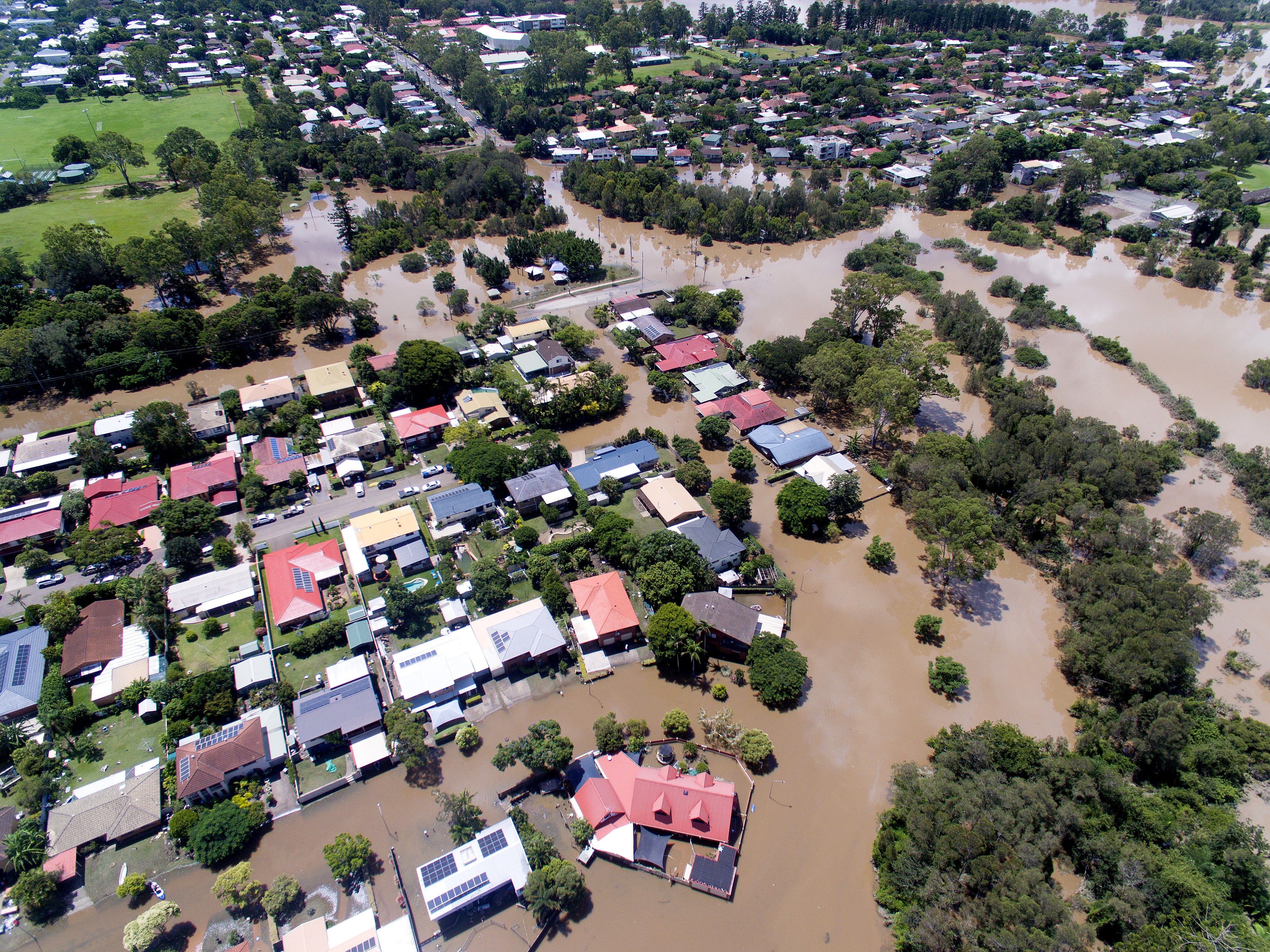Australia at climate ‘precipice’, scientists warn, as major flooding hits eastern areas of country
Tens of thousands evacuated from worst flood in a decade, as IPCC warns of increasing risks posed by extreme weather

As parts of Australia battle devastating flooding, climate scientists have warned the country is at a “precipice”, as the worsening climate crisis ramps up the impacts on the country.
The warning came after a United Nations report into the climate crisis around the world described an “atlas of human suffering” which is on course to bring “irreversible” changes to many parts of the world, including Australia and New Zealand.
In a fact sheet assessing the crisis in Australasia, the UN’s Intergovernmental Panel on Climate Change (IPCC) report said the continent was already experiencing extreme events such as heatwaves, droughts, floods, storms and fires, which have caused deaths and injuries, caused heavy impacts on ecosystems, as well as critical infrastructure, food production, and the national economy.
The warning came as tens of thousands of people have been evacuated and at least 10 people have been killed, with many still unaccounted for, following flash floods in eastern Australia after torrential rains hit Queensland and New South Wales.
The flooding, which is worst along parts of Australia’s southeast coast, is the worst to hit the country in a decade, and on Monday night, many residents in the town of Lismore in northern New South Wales were forced to spend the night on the roofs of their houses, according to the Associated Press.
New South Wales premier Dominic Perrottet said there had been 1,000 rescues in his state by Tuesday and more than 6,000 calls for authorities to help.
The floods are the worst since 2011, which were then described as a “once in a hundred year event”.
In the last three years alone, Australia has seen severe droughts, record-breaking wildfires and disastrous flooding, and the IPCC warned that as global temperatures continue to rise, Australia will see “more hot days and fewer cold days”, while “more extreme fire weather is projected in southern and eastern Australia”.
Biology professor Lesley Hughes, from Australia’s Climate Council, told the Australian Associated Press that people in the country can no longer be under any illusion about what is at stake.
“Ecologically, we are at a precipice. Some of our ecosystems on which our lives, and our livelihoods depend ... are now at critical thresholds,” said Professor Hughes, who has contributed to previous IPCC reports.
“Our role is to keep putting out the science, explaining it to people, informing the public so that when they go to the ballot box, they are informed about the greatest challenge of our age.”
The IPCC said Australia is now facing “cascading, compounding and aggregate impacts on cities, settlements, infrastructure, supply-chains and services due to wildfires, floods, droughts, heatwaves, storms and sea-level rise”.
The organisation said “reducing the risks would require significant and rapid emission reductions to keep global warming to 1.5-2C, as well as robust and timely adaptation”.
Agencies contributed to this report
Join our commenting forum
Join thought-provoking conversations, follow other Independent readers and see their replies
Comments
Bookmark popover
Removed from bookmarks